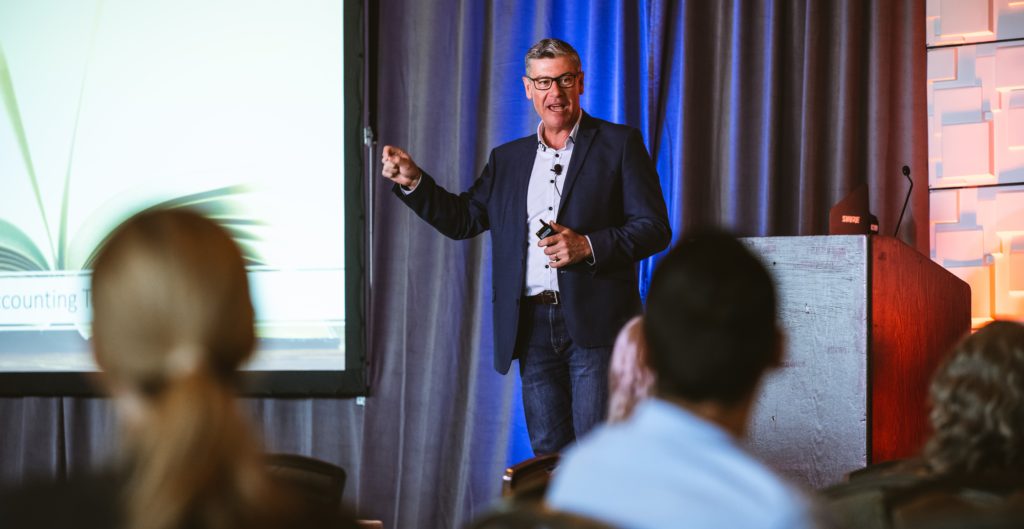Accounting Technology Is at an Inflection Point


With apps being used more than ever in accounting, these professionals have a chance to take some control over where technology and vendor relations go.
Accounting technology has been at an inflection point before, but not quite at the level it’s at now. Some in practice can think back to when technology allowed their manual tasks to be done on a desktop computer, changing the whole dynamic of how work gets done and, in some cases, the kinds of work they could do.
Clayton explained how with applications dominating nearly every aspect of accounting, we are again at that point of inflection. Only this time, the voice of the accountant needs to be heard more than ever.
[spark:newsletter-signup]
“We[accountants] are custodians of the present for the future, we are also protectors of the truth and guardians for our clients,” Clayton said. “Is it finally time for us to have an ethical charter when it comes to vendor-partnership agreements with accountants?”
Clayton politely explained how it has been the vendors that have largely controlled what accountants use and, moreover, the type of partnership they have. He noted that it is finally time for accountants to, perhaps, insist on having agreements of their own for the vendors to sign. Or, at the very least, they need to see more eye-to-eye on their mutual needs.
“The trust factor is huge, the [accounting] vendor partnerships need to be rock solid so we can back that up with the client,” Clayton said. “The first phase of a partnership is we all love each other, then we start to question then we despise each other and it falls apart. Accounting-vendor partnerships need to be understood from the start, explain it up front.”
Historically, many of the “accountant programs” vendors have offered position the accountant as more of a “sales channel” versus a truly, mutually benefical partnership that includes feedback from the accounting professionals. This isn’t to say they’ve all been like this, some have lasted for years with few issues. Clayton himself noted he has vendor relationships that go back nearly 30 years.
On the whole, Clayton said he believed that with the sheer amount of technology vendors looking to expand their connection with accountants, the potential for a one-side leaning relationship remains a threat.
“As a community, we need to step in and stand up, call this out and deal with it (when it comes to better vendor-accountant relationships),” he said. “Can we co-exist with a product-based, sales focused industry(like the vendor community in accounting)?”
Clayton continued to note the two kinds of business relationships that exist: finite and infinite. The ‘finite’ relationship is one that, as indicated has a beginning and an end-game in mind. The essential purpose of the finite game is to finish it, by ‘winning,’ or beating the competition and ending the game.
The finite relationship can also be something that is pre-agreed upon, whereby it is undersood that the vendor provides X for five years, the accountant promises to do Y in that time and then it’s done. The infinite relationship is also one Clayton explained could use more attention and mutual agreement, as the intent is to keep it for life, but things can and will change in that time. As such, this relationship requires regular communication.
Clayton himself recalled one vendor relationship whereby it started off mutually beneficial, and was for some time, but then the service provider actually began to compete with what he was offering. Unfortuantely, he said, this has become more common in the accountant-vendor community, over time.
Whatever the relationship, Clayton again stressed that it has to be up front. It has to be mutually beneficial and with a foundation of trust. This includes reading through terms and conditions of the partnership carefully and understanding what the terms themselves mean, perhaps even having a checklist the accountant can review and assess before signing.
“You do have to wonder, have we reached peak partnership? Vendor community, you actually don’t need to partner with accountants, this is optional, it’s OK to go direct. But if you are going to turn up, continue to turn up,” Clayton said. “And [more importantly] if you are going to call it a partnership, don’t pretend that it is a partnership, when it’s really something else.”

